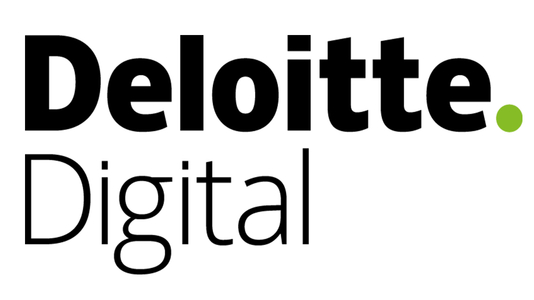

HUSSEIN DAJANI
Partner and CMO
Deloitte Digital Middle East
Hussein M. Dajani is a marketing and communication consultant, currently Partner and CMO at Deloitte Digital Middle East, where he heads up the Branding, Advertising, Content Factory, Marketing Transformation, CX and Commerce offering. He has worked with WPP & Publicis, overseeing some of their largest regional clients and was awarded the renowned ‘WPP Young High Potential Leaders' Award, as well as receiving regional awards from the likes of Gulf Marketing Review, which identified him as one of the 40 top marketing professionals in the region, and being voted by the Huffington Post as among the 10 people changing the Marcom landscape in the MENA region. He was also voted as being among the top 200 CX leaders globally to watch in 2021 and 2022, BTX Top Executive Award 2021, BIZZNXT AWARDS 2022, CX Professional of the year 2022, and inducted into the CX Hall of Fame 2023. Hussein also sits on the Advisory Board of CMO Council Middle East and CXPA Middle East Regional Leadership Council. Dajani’s core expertise lies in the Digital Marketing and Tech space, evolving over the years from a pure player marketeer. Starting his career with some of the worlds' greatest communication companies, prior to joining Deloitte Digital as a Partner for the Advertising, Marketing, Content, CX, and Commerce market offering, and Head of ACNE Middle East (a Deloitte Digital business).
In an era where conversations around gender equality are louder than ever, echoing with the demands for gender equality, it remains disheartening to witness certain industries persistently perpetuating gender stereotypes in their marketing activities. Despite collective efforts to sculpt a more inclusive and equitable society, some sectors -- notably the automotive, baby products, and food industries -- still fall short in aligning their communications with the principles of gender equality.
Revolutionizing Automotive Narratives
Venturing into the automotive sector reveals a persistent portrayal exclusive to one gender, predominantly favoring men in marketing strategies. Car advertisements often lean on outdated stereotypes, reinforcing the misguided notion that specific vehicle models are designed exclusively for men. This narrow perspective not only restricts consumer choice but also perpetuates harmful gender norms, significantly impacting the collective perception of what automotive experiences can encompass.
- Exclusionary Messaging: The prevalent portrayal of driving as a male-dominated activity in automotive advertisements sends a clear message of exclusion to female consumers. By perpetuating the stereotype that certain vehicle models are exclusively designed for men, the industry marginalizes women and implies that their presence in the automotive world is an exception rather than the norm. This messaging undermines the significant and growing number of women drivers and car enthusiasts, contributing to a biased and outdated narrative.
- Limited Consumer Choice: The perpetuation of gender-specific stereotypes in automotive advertising limits consumer choice by implicitly suggesting that certain vehicles are not meant for women. This not only hinders women's ability to make informed choices based on personal preferences, but also reinforces the notion that their automotive interests and needs are secondary.
- Harmful Gender Norms: Such advertising practices entrench harmful gender norms by associating specific activities, such as driving or choosing a car, with a particular gender. This reinforces the notion that certain skills or interests are inherently linked to one's gender, perpetuating stereotypes that hinder societal progress towards gender equality. It also implies that women are not as capable as men in making informed decisions about vehicles, contributing to a broader pattern of gender-based discrimination.
- Undermining Women's Automotive Knowledge: The portrayal of automotive decision-making as exclusively within the realm of men undermines women's knowledge and expertise in this field. With the automotive industry historically dominated by male perspectives, such messaging disregards the extensive knowledge that women possess about cars, driving, and their preferences in vehicle features. Women make up a significant portion of the consumer base, and their understanding of automotive technology and design should be acknowledged and celebrated.
- Impact on Collective Imagination: By perpetuating gender-specific automotive stereotypes, the industry limits the collective imagination of what automotive experiences can be. It reinforces a narrow and outdated narrative that fails to recognize the evolving interests and aspirations of both men and women in the modern world. Breaking free from these stereotypes would not only align with the reality of the diverse automotive consumer base, but also open up new creative possibilities in marketing and product design.
The automotive industry's reliance on outdated gender stereotypes not only undermines the diverse interests and preferences of women consumers, but also perpetuates harmful gender norms. It is crucial for the industry to recognize and challenge these biases.
Redefining Parenthood in the Baby Products Industry
The baby products industry similarly leans into traditional gender roles, painting mothers as the primary caregivers while relegating fathers to a secondary role. From diaper commercials to baby food advertisements, messaging often reinforces the notion that certain products are exclusive to one gender's use or enjoyment. This not only diminishes the diverse roles that parents play in child-rearing, but also restricts choices based on gender, perpetuating a binary and outdated view of parenting responsibilities.
- Role of Moms in the Kitchen: One glaring consequence of such gender-based marketing is the portrayal of moms as being solely confined to the kitchen, responsible for preparing nurturing and often elaborate meals for their families. This imagery not only reinforces outdated gender norms but also oversimplifies the diverse roles that mothers play in modern society.
- Undermining Culinary Diversity: The stereotypes associated with gender-based marketing undermine the rich diversity of culinary experiences within each gender. By limiting the culinary narrative to narrow gender norms, the industry overlooks the vast spectrum of preferences that exist within individuals, contributing to a homogenized and stereotypical portrayal of consumer tastes.
- Missed Opportunity for Inclusivity: The pervasive nature of gender-based marketing in the food sector represents a missed opportunity for celebrating diversity and inclusivity in culinary experiences. Food is a universal language that transcends gender, and consumers today embrace a broad spectrum of tastes and preferences irrespective of traditional gender norms.
- Impact on Consumer Choices: These gender-based stereotypes influence consumer choices by creating artificial distinctions in the types of food deemed acceptable for different genders. This not only limits individual freedom but also restricts the culinary landscape for consumers.
- Encouraging Inclusive Culinary Narratives: The industry has the opportunity to break free from these stereotypes and encourage more inclusive culinary narratives. Embracing diversity in marketing messages by depicting men and women enjoying a broad range of foods can contribute to a more authentic representation of consumer tastes and preferences.
It is essential for the industry to recognize the evolving preferences of modern consumers and actively contribute to breaking free from these narrow views. By doing so, the food sector can play a pivotal role in fostering a more inclusive and authentic representation of individuals and their diverse tastes in the culinary landscape.
Empowering Inclusive Marketing Strategies
It's imperative for companies to acknowledge that their consumers are dynamic individuals, not confined by one-dimensional perspectives. Society is evolving, and individuals are breaking away from traditional gender roles. Brands that persist in portraying a limited and outdated view of their target audience risk alienating a substantial portion of their customer base.
The Path to Transformative Change
The journey to dismantling these stereotypes necessitates a profound revaluation and reshaping of marketing strategies. Brands possess the power to challenge societal norms and contribute to a more inclusive narrative. Here are strategic steps companies can take to usher in transformative change:
1. Diverse Representation: Ensure marketing materials reflect diverse representation, showcasing people of all genders enjoying and benefiting from products and services. This approach breaks away from conventional portrayals and promotes inclusivity.
2. Neutral Messaging: Adopt messaging that transcends gender stereotypes, steering clear of ascribing specific qualities or preferences to a particular gender. Focus on universal themes that resonate with a broad audience, fostering a more inclusive brand image.
3. Inclusive Campaigns: Launch campaigns that celebrate diversity and inclusivity. Share stories and experiences that go beyond traditional gender norms, highlighting the richness of human experiences and preferences.
4. Listen to the Audience: Engage with the audience to understand their preferences and concerns. Utilize this valuable feedback to tailor marketing strategies that authentically reflect the values of a diverse consumer base.
5. Educational Initiatives: Implement educational initiatives within the company to raise awareness about the impact of gender stereotypes. Encourage a more inclusive mindset among employees, fostering an environment that supports diversity and equality.
It's high time for brands to transcend clichés and embrace a more progressive approach to marketing. Breaking free from gender stereotypes isn't just a social responsibility; it's a strategic imperative. By doing so, companies can contribute to a more equal society and simultaneously build stronger, authentic connections with their audience. The road to true gender equality in marketing requires a fundamental shift in perspective, and the time for change is now.
